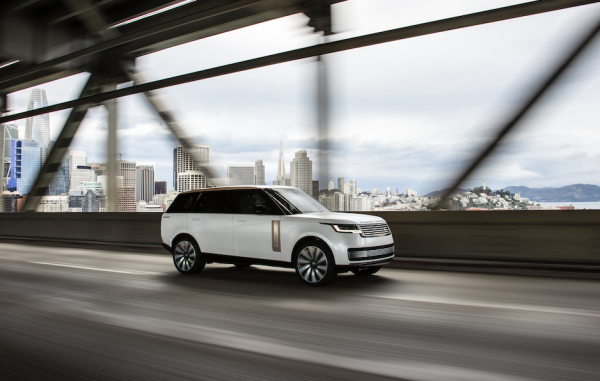JLR, the British automaker, is rebranding itself as “JLR” and making a shift towards battery-powered vehicles as part of its Reimagine strategy to become an “electric-first, modern luxury carmaker” by 2030. The company plans to invest £15 billion over the next five years to upgrade its facilities in the UK to make electric vehicles, including making its Halewood plant an all-electric manufacturing facility and its Engine Manufacturing Center in Wolverhampton producing electric power trains. In addition, JLR will spin off several Land Rover models as their own brands and begin taking pre-orders for its first all-electric Range Rover later this year.

JLR, the British automaker, has recently announced its plans to shift its focus towards battery-powered vehicles, and in line with that, will officially be known as just JLR. The company is also set to spin off several Land Rover models as their own brands, and pre-orders for the first all-electric Range Rover will begin later this year. JLR’s goal is to reposition itself as an “electric-first, modern luxury carmaker” by 2030, which will involve investing £15 billion (about $18.7 billion) over the next five years in upgrading facilities in the UK to produce electric vehicles.
Another significant development for JLR is its move towards a “House of Brands” approach to marketing and selling its cars and SUVs. The company plans to divide its lineup into four distinct brands, which include Range Rover, Defender, Discovery, and Jaguar. Despite Land Rover not being on the list, it will still be seen on new Range Rovers, Defenders, and Discoveries. A JLR spokesperson confirmed that “Land Rover will remain” and that “the Land Rover name remains visible on and in our vehicles, reinforcing our off-road credentials and technology capabilities.”
Upcoming EVs
JLR provided some exciting information regarding its upcoming lineup of electric vehicles. Later this year, the company will start accepting pre-orders for its first all-electric Range Rover, which is set to launch in 2025. Additionally, JLR plans to introduce three reimagined Jaguars that will be powered by batteries. The first of these vehicles, a four-door grand tourer, is also scheduled to debut in 2025. More information about these EVs will be disclosed later this year.
While JLR’s plans to shift toward electric vehicles are ambitious, the automaker has been slow to embrace electrification in the past. JLR has only produced one fully electric car, the Jaguar I-Pace SUV, which has faced challenges competing against more established electric carmakers. Additionally, the I-Pace is produced by a contractor, rather than being built in-house by JLR. In contrast, competitors such as Mercedes-Benz, BMW, and Audi have been accelerating their transition to EVs and now offer a full range of plug-in model types.
Advancements
Jaguar, on the other hand, has announced that it will start producing its new line of EVs in 2024, with the first being a four-door grand tourer manufactured at the Solihull factory. Jaguar aims for a range of 430 miles (700km) and a starting price of £100,000 for this vehicle, which will be followed by two more EVs in the coming years. While JLR has not provided many details about its investment in autonomous vehicles, the company has committed to allocating some of its funds to “autonomous, AI and digital technologies.” JLR has an agreement with Waymo to equip its I-Pace electric SUVs with autonomous driving hardware and software, and Waymo is already operating a fleet of autonomous Jaguar I-Pace vehicles in California and Arizona.
In a previous agreement, JLR had partnered with Nvidia to equip its vehicles with powerful computers to enable advanced driver assistance and autonomous driving capabilities. From 2025, all JLR cars will be equipped with Nvidia’s end-to-end Drive Hyperion platform.











